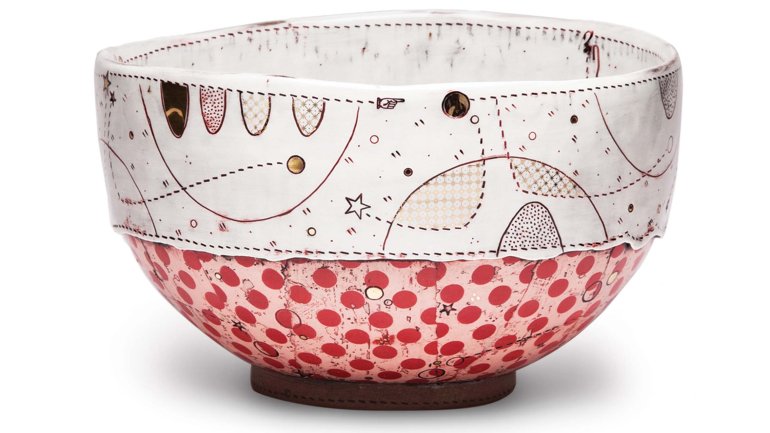Stitched
Stitched
These artists may not work with textiles, but they still appreciate the tailor’s art.
For her final design school project, Israeli designer Danit Peleg didn’t want to use just any textiles; she wanted to make her own. So she set out to 3D-print a collection of five ensembles. Her favorite part? Designing without intermediaries. “As technologies evolve,” she predicts, “we will soon be all printing our own clothes at home.”
Susan Taylor Glasgow’s Do Not Touch (2015) exhibits not only her mastery of glassworking, but also her history as a professional seamstress. “I have a comfortable understanding about how to take a flat sheet of material and give it form,” says the Missouri maker.
“A line is a dot that went for a walk,” Paul Klee said. The meandering lines in Tom Cramer’s Aromatic Garden (2013) evoke a long, circuitous ramble. The subtle undulations in the piece suggest a quilted surface – but no: The Portland, Oregon, artist’s work is carved mahogany, highlighted with silver, gold, and copper leaf.
When she began enameling, Texas jeweler Lisa Crowder wanted to create lines in her work; a needle and thread were the answer. The stitches add texture as well as line. “I loved the contrast between the hardness of the enamel and the softness of the thread,” she says.
Atlanta artist Leisa Rich, a one-time fashion designer, loves to incorporate embroidery in her mixed-media work. But the sewing she favors is more expressive than you might find, say, in a classic sheath dress. Things Might Be Black and White ... But I’m Seeing Red (2014) conjures amoebae, spider webs, and other organic curiosities.
Jason Bige Burnett loves a dashed line. It adds energy to a surface, says the Kentucky graphic designer-turned-ceramist, summoning the excitement of packaging that urges us to “cut along the dotted line.” Dashed lines also pay homage to sewing, another passion of Burnett’s – he recently finished his first quilt.

